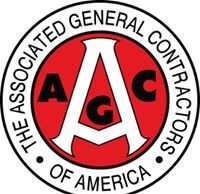Habitat for Humanity leads efforts to ensure New Urban Agenda prioritizes housing
Representatives will engage with world leaders at final preparatory session for UN’s Habitat III conference
SURABAYA, INDONESIA (July 25, 2016) – (RealEstateRama) — Habitat for Humanity, as the lead representative of civil society organizations, will join world leaders this week for the third and final session of the Preparatory Committee, or PrepCom 3, for Habitat III, the United Nations Conference on Housing and Sustainable Urban Development. Habitat for Humanity has played an integral role throughout the development of the New Urban Agenda, an outcome document that will define the UN’s global urban strategy for the next 20 years. As negotiations take place this week, Habitat aims to influence policymakers to take an informed and effective approach to the growing challenge of urbanization.
“The United Nations forecasts that by 2050, 66 percent of the global population will live in cities – up from 54 percent in 2015 – making Habitat III a critical opportunity to address the current and future impact of urbanization,” said Jane Katz, director of International Affairs and Programs at Habitat for Humanity International. “While urbanization can pose challenges, cities are also the engines of economic growth and provide opportunities for better health, schools, access to basic services and infrastructure. The New Urban Agenda must be a measurable, forward-looking and action-oriented document, providing guidance and next steps for cities throughout the world. We look forward to working with Member States to ensure key elements addressing global housing challenges remain or are strengthened at PrepCom 3 and beyond.”
To effectively address urbanization, Habitat recommends four key components that must be included in the New Urban Agenda: emphasize the need for adequate and affordable housing; prioritize security of land tenure; promote community-led development; and set specific and accountable measures.
Habitat will present during PrepCom 3 in the following side events: Inclusive and Equitable Housing Strategies for All, with a focus on gender, youth and older persons; Land and Housing at the Core of the New Habitat Agenda: Recommendations and Key Messages; and Key Areas for Implementation of the New Urban Agenda.
The final draft of the New Urban Agenda will be announced during UN’s Habitat III conference in Quito, Ecuador, October 17-20. Bringing together 193 countries that will renew their commitment to sustainable urban development, Habitat III will draw world leaders who are UN members; representatives from civil society organizations, governments and municipalities, women and youth groups, and trade unions; members of the private sector; and professionals from academia and foundations.
Leading up to the global conference in Quito, Habitat for Humanity has played a central role by co-chairing the civil society working group in the World Urban Campaign’s General Assembly of Partners; co-leading the housing expert working group, or “policy unit,” established by the United Nations and issuing a new comprehensive report outlining a strategic approach to ensure more affordable, adequate and safe housing worldwide; participating in regional and thematic meetings and contributing to their outcome documents; hosting “Urban Thinkers’ Campuses,” interactive dialogues promoted by the World Urban Campaign; and contributing to national Habitat III reports prepared by individual countries, including serving on the U.S. National Committee and presenting at the U.S. regional meeting in Denver, Colorado, hosted by the U.S. Department of Housing and Urban Development.
About Habitat for Humanity International
Driven by the vision that everyone needs a decent place to live, Habitat for Humanity has grown from a grassroots effort that began on a community farm in southern Georgia in 1976 to a global nonprofit housing organization in nearly 1,400 communities across the U.S. and in over 70 countries. People partner with Habitat for Humanity to build or improve a place they can call home. Habitat homeowners help build their own homes alongside volunteers and pay an affordable mortgage. Through financial support, volunteering or adding a voice to support affordable housing, everyone can help families achieve the strength, stability and self-reliance they need to build better lives for themselves. Through shelter, we empower. To learn more, visit habitat.org.

















